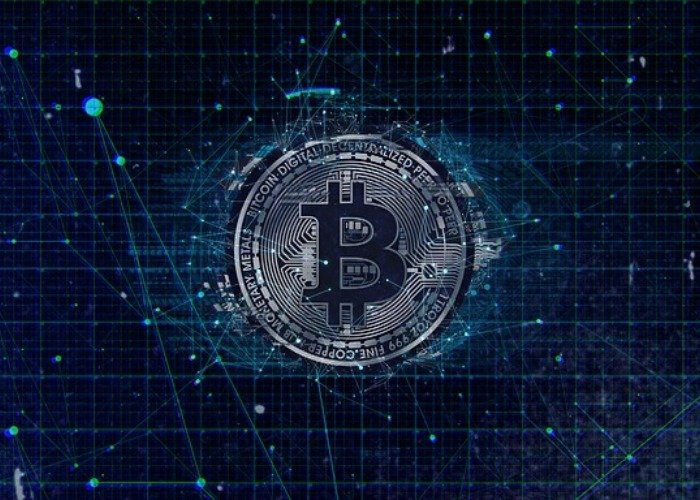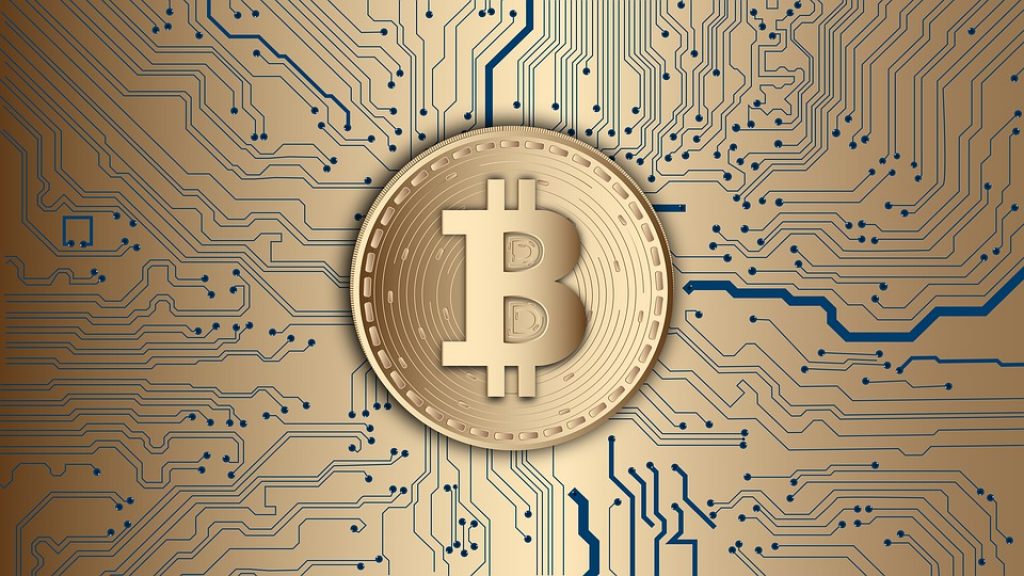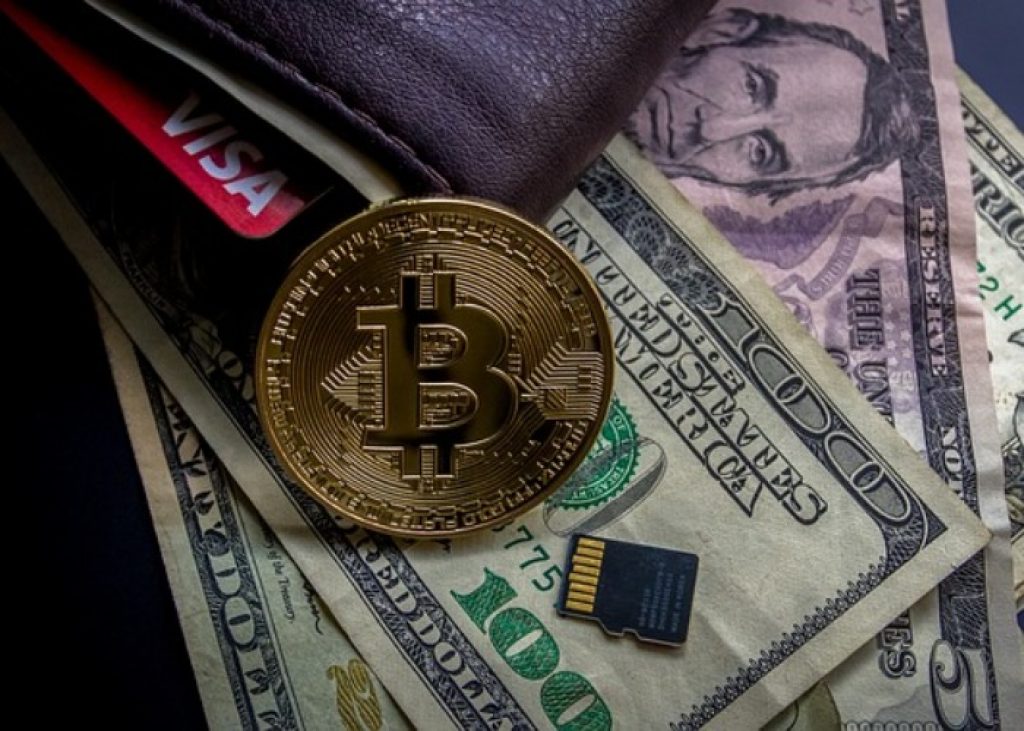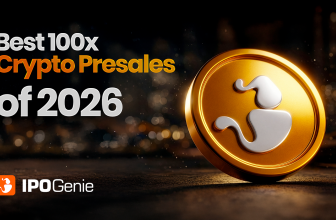
What is the intrinsic value of Bitcoin and why is bitcoin valuable?
Many have asked this question since the king of cryptocurrency market came into existence back in 2009. Throughout the years we valued it mostly through the lense of its USD price, which certainly had its ups and downs.
We saw this metric culminate at the tail end of 2017 when Bitcoin reached an all-time high at just above $20,000, after one of the most remarkable bull markets the investment world had ever seen. As we are all well familiar, the moon quickly turned red and the year of 2018 saw a strong price retraction, one that is seemingly not over yet.
As Bitcoin hovers just below $4000 the question from the start of this article remains more relevant than ever: does Bitcoin even have any value at all?

Many believe that the answer is no. Howard Marks, the man who manages $90 billion for Oaktree Capital, wrote to his investors that “digital currencies are nothing but an unfounded fad (or perhaps even a pyramid scheme), based on a willingness to ascribe value to something that has little or none beyond what people will pay for it.” Warren Buffett, outspoken Bitcoin opponent, claimed recently that “Bitcoin has no unique value at all. It doesn’t produce anything.
You can stare at it all day and no little Bitcoins come out. It’s a delusion basically.” So are these naysayers correct in their outlandish claims? Let’s look into the concept of intrinsic value before answering the question above.
What you'll learn 👉
Bitcoin intrinsic value
The concept was originally introduced by classical economic theorists who believed in the “Labor Theory of Value”, where a certain good was considered as valuable as the labor that was put into making it.
This theory was later on dismissed, as it is pretty clear that how hard you work on something doesn’t really determine how valuable that something is. The concept of intrinsic value was later expanded by Carl Menger, the founder of the Austrian School of Economics, who redefined the way we think about the problem by introducing the Subjective Theory of Value.
This theory tells us that the fundamental valuation of something has certain speculative and subjective elements to it. Finding the intrinsic value of an asset requires fundamental analysis of said asset.
We analyze the labor and resources that were put into creating it, the asset’s utility, scarcity and market demand for it, and many other relevant fundamental factors. With this analysis it’s important to note that different people can potentially have different valuations for the same fundamental, which will inevitably lead to them having different valuations of the good itself.
Take a loaf of bread as an example. The labor and resources required to make one loaf of bread objectively aren’t that valuable. However, its value will be heavily influenced by subjective details like how scarce bread/food in general is. Someone who just ate might not value a loaf of bread very highly, but someone who hasn’t eaten in days might be willing to pay quite a hefty price for that same piece of bread.
What gives bitcoin its value? How is bitcoin valued?
How does this translate to the world of cryptocurrency, and namely Bitcoin? Looking at it from a distance, Bitcoin is nothing more than an overhyped hodge-podge of various technologies from the 90’s that some nerds are using to trick young and naïve individuals out of their value. But have you ever stopped to wonder how “real” your money actually is and what is the intrinsic value of your average fiat currency?
In the olden days when the concept of money was implemented to improve the way people exchanged goods, it certainly had intrinsic value. Before money existed, people relied on goods-for-goods exchange, where one side would provide a certain good and in return would receive the good they wanted.
Let’s just say that if you were a potato grower who wanted to enrich his palette with some tomatoes, you had to find a tomato producer who was willing to accept your potatoes in exchange for his goods. Introducing money, the ultimate universal good, into the mix, made commerce/trade quicker, more practical and ultimately led to creation of the economy as we know it today.
This intrinsic value of fiat money seems to be lost today, as the thing seems to more often than not stand in the path of creating a truly global, free economy of the future. Every country has its own national currency, currency which is often times backed by nothing other than the government forcing it as the state’s legal tender.
Earliest implementations of fiat were such that the money was partially backed by gold, silver and valuables; today’s money is basically fiduciary, aka backed by faith in the government that issues it. The supply of this money isn’t limited, meaning that the country can create additional units of the currency at its own behest to control the value. Ultimately, what you have with fiat is a piece of paper/a coin that is as valuable as you are ready to be forced into believing it is.

One stick that is often used to beat fiat money with is the fact that financial institutions are woefully slow when transferring it, even on a local level. International transfers are a story of their own; it’s sometimes faster to physically transfer the actual product that you want to buy from another country than it is to deliver the payment for said product to the merchant you bought the product from.
Some experiments (like the Euro) have attempted to create bridge currencies that would create a more united world market, but the issues and the friction still remain. Ultimately, having a global economy with a wide palette of means of exchange can significantly slow down commerce.
We all know these issues exist, as we are faced with them on a daily basis. We are aware that we labor 40 hours a week to receive a piece of paper whose value proposition is backed only by our trust that the government knows what it’s doing.
Thing is, most of the times it doesn’t. Additionally, we also know how long it takes to send money to someone abroad, how much it costs, and how banks don’t work on weekends. If we are to use the analogy from above in the article, fiat money can be seen as nothing more than a paper printing scheme used by bankers to trick naïve investors out of their value.
Bitcoin’s intrinsic value stems exactly from offering an alternative to the current financial system, an alternative that can potentially solve all of the problems listed above. It can one day become the distributed payment network of the entire planet, a decentralized, limited-supply reserve currency that will be available to anyone, anywhere, anytime.
Bitcoin looks to support and ultimately dethrone national fiat currencies and global financial institutions of today with its ability to provide global seamless, cheap, nearly instant and anonymous commerce and value storage.
In its ultimate form, Bitcoin exhibits all the features one universal exchange good needs to have. Perfect Bitcoin is:
- Fungible – Each Bitcoin is the same as the next one and are perfectly interchangeable.
- Non-Consumable – Cannot be consumed.
- Extremely portable – You can hold/transport Bitcoin on almost any device that can access the internet; there were stories of people storing their Bitcoin on smart washing machines.
- Durable – Cannot be destroyed.
- Highly Divisible – Can be split into lower increments (satoshis).
- Secure – Cannot be counterfeited.
- Easily transactable – Transactions with Bitcoin usually take several seconds to complete; this does depend on network congestion.
- Scarce – A total supply of 21 million.
- Not issued by a single entity – Isn’t sovereign (government issued) like fiat.
- Decentralized – Depends on a network of decentralized nodes.
- Smart – Can have additional features added to it.
Such a good has the potential to disrupt the way our economy works and maybe even usher in a new step in its overall evolution.
There is also some “real world” value behind it, as there seems to be a heavy correlation with the price of Bitcoin and the marginal cost of mining it. Satoshi Nakamoto, the father of Bitcoin, introduced the concept of “mining” into his creation in a brilliant ploy to slowly increase the cryptocurrency’s supply and motivate network validators to keep doing their job.
Bitcoin mining is essentially a process during which Bitcoin nodes construct blocks out of Bitcoin transactions and then solve complicated cryptographic problems in order to add these blocks to the Bitcoin blockchain.
Mining is an extremely resource-intensive activity; it requires heavy infrastructural investment (getting the proper hardware) and also spends a lot of electricity. All of this costs money; some sources suggest that the current marginal cost of mining a single Bitcoin sits at around $4,300. If we look at the current Bitcoin price, we can see that we are pretty close to these levels. Many fundamental analysts believe that Bitcoin’s price will never fall much below the marginal cost of its mining; if we were to believe them, we might even come to a conclusion that the bottom of the current bear market is actually in.
One additional source of real world value Bitcoin’s its adoption. Even with the technology being in early, painful stages of development, people are more and more willing to use it for transfers, purchases and even value storage. The value of one good is determined by the people who want to use it; with Bitcoin, the number of these people seems to be growing by the day.
In conclusion
Most of Bitcoin’s value is currently tied to its potential and there are some real issues that it needs to address before fulfilling said potential. Problems with network scalability, coin fungibility, anonymity, abstract problems like Bitcoin’s ties to illegal markets are among most often mentioned problems of the existing Bitcoin infrastructure. Even with Bitcoin in such a state, more and more people seem to realize that decentralized blockchains represent a significant upgrade from the “normie” financial infrastructure and classical banking, both of which haven’t evolved much (if at all) during the past 100 years.
All of this brings us back to the initial question: What IS Bitcoin’s intrinsic value? It’s difficult to give an exact answer to this question as value is overall subjective. What things come down to is how much people really need Bitcoin; in a world where centralization and century-old financial practices seem to slow us down at every step of the way, this need might be greater than most of us realize. Only time will tell when (and if) this need will be recognized.






